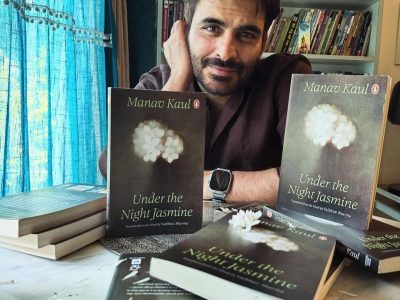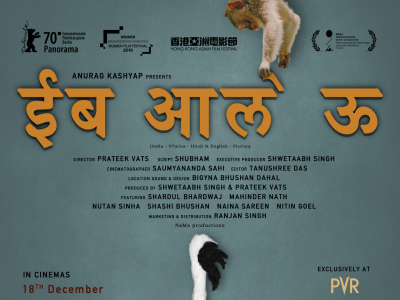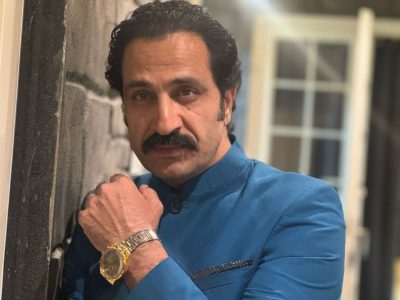Highlighting misleading work contracts in the Middle East that trap the worker in a foreign land with a meagre income, this film aims to initiate a conversation on a stirring issue
Poetry of romance in Sangam literature assigns human experiences to specific landscapes. Following this guideline, Jayakrishnan Subramanian directed the short film, Palai — Landscapes of Longing, which was first screened on April 15 at the Max Muller Bhavan in Chennai as part of the 6th Chennai International Documentary and Short Film Festival 2018.
In the film, the desert landscape of Palai, which is often associated with themes of separation and longing, forms the backdrop to a tale which explores themes of labour migration in one of its extremities. The film centres around the socio-political context of Tamil migrants working in the Middle East — the financial compulsions which made them leave behind their family and move to a distant land, the restrictive work conditions under the Middle East’s Kafala system and the manipulative opacity of work contracts that entice but later trap migrants. And what better landscape than the mythical parched wasteland of Palai to depict this subject.
“We try to initiate a conversation with the film,” Jayakrishnan says, responding to a question about the advocacy angle of the film. “I am curious to show the film to migrant workers and I would like to know their reactions. Most of them are aware of the troubles in migration but they leave because there are no better options here.”
“They go there to support their children’s future,” he adds, stating a fact that resonates with his personal history, as the film is based on Jayakrishanan’s family story. “Sundari is my cousin,” Jayakrishnan says. “Her husband, Baskaran, was missing for three months in Dubai. We then found out that he had died there. This was a big shock for our entire family… nobody knew how and under what circumstances he had died. We tried to contact the Indian embassy in the UAE but didn’t get much help.”

As depicted in the film and in line with actual happenings, Baskaran went to Dubai in search of a job with which he could support his family’s increasing financial needs. But it was only when he started working in Dubai did he realise the salary was meagre and he couldn’t possibly repay the heavy loan he had taken to cover initial expenses, much less send money back home. And as time went by, the situation only got worse when salary payments from the employer became irregular.
Such instances are sadly, quite common in the migrant labour community in the UAE. Details specified in work contracts about pay and working conditions, as well as promises made by agents about how quickly one could start working and earning, rarely paint a realistic picture. And such working conditions have often come under the international scanner.
A recent report by Amnesty about the UAE noted, “Migrant workers who comprised the vast majority of the private workforce, continued to face exploitation and abuse. They remained tied to employers under the kafala sponsorship system and were denied collective bargaining rights.”
Like many Middle Eastern nations, the UAE monitors its migrant workforce by way of a system called Kafala, which is, in effect, a sponsorship programme, wherein any foreign worker who wishes to work in a country ought to be sponsored by an Emirati (a national) or by a business with Emirati involvement (as a partner, director). The visas granted under this system are temporary and are required to be renewed at regular intervals.
The devil though, lies in the details, and one such detail which is particularly relevant in the present context is the fact that once employment is terminated, the worker is required to leave the country. But since employers routinely withheld passports, workers could not legally go back to their home countries. Such composite themes in labour migration are exactly what the short film captures by way of retelling a personal story.
Eventually, Baskaran began to take up odd jobs, unaware of the repercussions which ensued from the violation of work permits — the visa that Baskaran held only allowed him to be employed at one particular company. And, as was the common practice in the UAE, the employer had confiscated his passport. So, once Baskaran quit the job, he immediately became an undocumented worker.
Not much is known about what happened thereafter and official communications cite suicide without providing sufficient corroboration. “After this wretched event, I started to research about the workers’ conditions in the UAE. My mother and her sisters wanted me to bring the story to the media,” he says, hoping to find justice and some monetary compensation for his cousin to enable her to support her children. “She has studied only till the 5th grade and can only sign,” he adds.
Jaykrishnan has also directed a feature-length film, Shadows of the Desert, along with his wife Franziska Schoenenberger, about Baskaran’s tale. The 86-minute film is largely investigative and explores the mysterious background of Baskaran’s death, with ground reports from Dubai personally collected by Jayakrishnan and research assistance from Bernard D Sami, a professor at Loyola College (Chennai). The film premiered in Munich, Germany this year.





